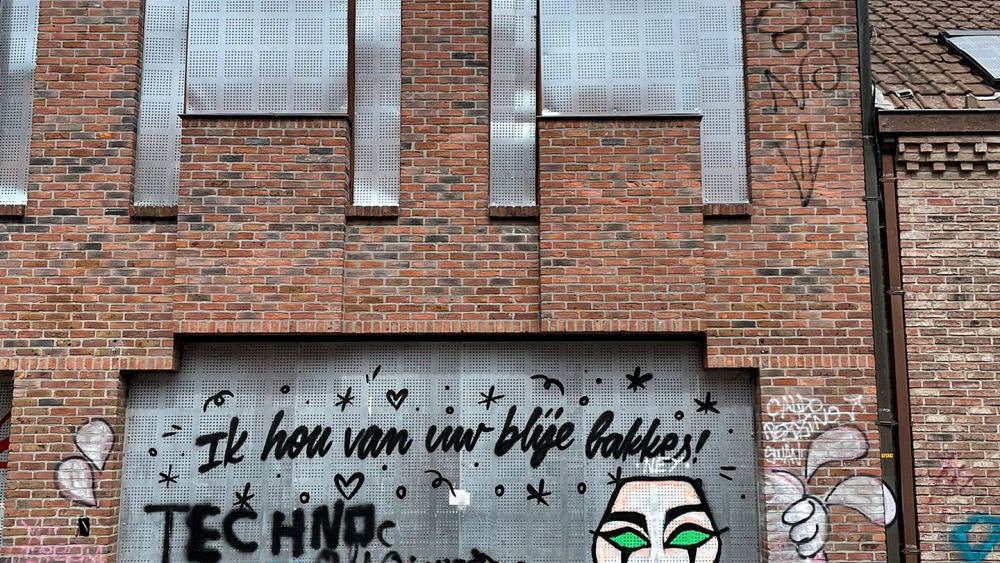
Once a bustling eastern Flemish town of around 1000 inhabitants, today Doel is home to less than two dozen people.
Among them are Kevin and his 3-year-old son Rover.
Born and bred in the region, Kevin has been fighting for the survival of the town for years and repairing many houses along the way.
“When I was 18 years old, they decided to get rid of Doel, so we got the news that we had to leave. And also, we had to leave, so my parents sold their house. And that was the first time that I realised that something special was going on here,” Kevin tells Euronews.
That ‘something special’ Kevin refers to was the Flemish government’s decision to demolish Doel. It was back in the 90s and the plan was to expand the port of Antwerp to get more space for ships to dock.
But 21 years later, Doel feels derelict as government plans constantly changed and the locals constantly resisted.
Meanwhile, tourists flock to what now looks like an open-air street art museum.
“The more people see the situation, the village is in, the more we like it because you create public opinion about how it is a shame to leave the houses in this way and the more we can tell our story to people, it’s also something good for us. But now, with the current measures, the latest year, it was a disaster here. We had thousands and thousands of people coming here because there was nothing else to do in the rest of Belgium,” says Kevin.
The other challenge for Doel has been dealing with vandalism, looting and joyriding. Police now patrol the area to crack down on these nuisances.
“Now large gangs cannot come here or they get a fine. We also have the houses all sealed. So that’s also a good thing,” says Kevin.
Local politicians are also taking note. Searching for ways to save the Doel their predecessors themselves decided to destroy. There is a new plan to keep the town but also expand the harbour. Clearer details will emerge by the end of the year.
“I’m actually responsible now since a couple of months for some negotiations with environmental organisations,” says Matthias Diependaele the Flemish minister for budget and housing adding that the negotiations are “as for now, very successful, I believe, and I’m very hopeful for a good completion, good conclusion. I believe that a very bad conflict of twenty years will hopefully come to an end. At the latest by the end of this year, I hope.”
A compromise perhaps, but with so much damage already done to Doel and its people, it will never be enough to call a happy ending.











